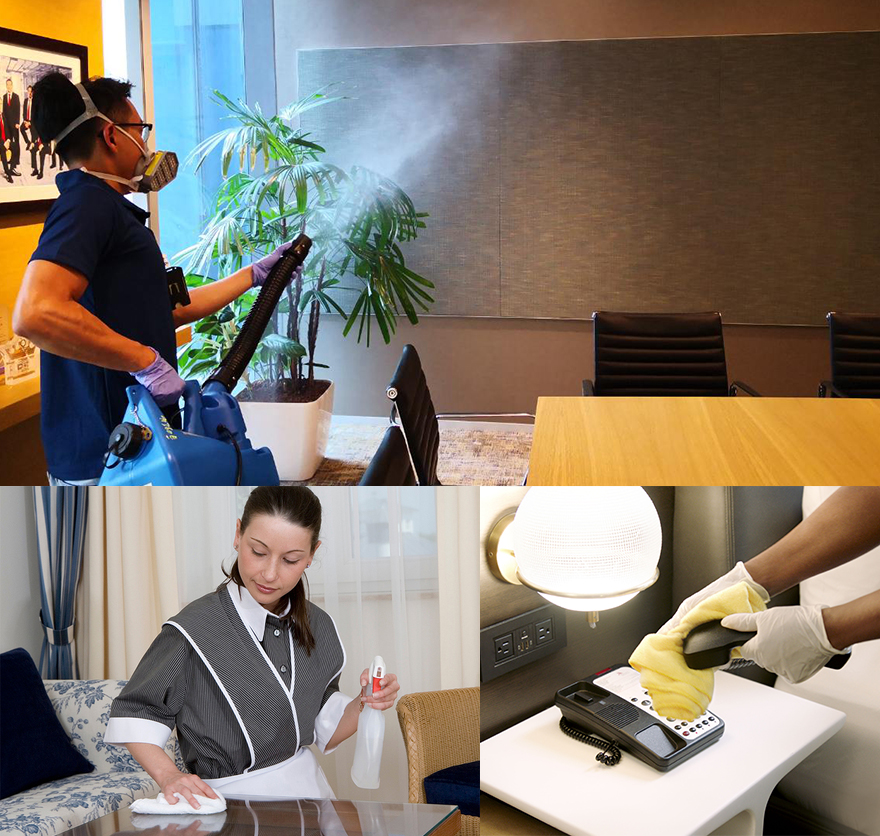Free: +91 9300472274

Maintaining a clean work environment is critical in preventing foodborne illness. Bacteria can grow on unsanitary surfaces and then contaminate food. Just because a work surface looks clean does not mean that it is sanitary. Always ensure that you clean and sanitize a work area before starting to prepare food.Cleaning with soap and other detergents is just one step of the cleaning procedure. It is also necessary to sanitize. Cleaning will remove any dirt or grease, but will not necessarily kill any bacteria or other pathogens. Only a sanitizer will kill bacteria and ensure the area is safe for food preparation. Leading sanitizers used in the food service industry are chlorine solutions (bleach). A sanitation plan is important in any food service preparation area. It ensures that all surfaces are cleaned on a regular basis and reduces the risks of transferring bacteria or other pathogens from an unclean surface to clean equipment such as cutting boards or tools.
Effective dishwashing ensures that all equipment is sanitary and ready for use when required. Using soiled or dirty china is not only dangerous, but it will tell customers that the operator as little or no regard for customer safety.
| Step | Manual |
|---|---|
| Wash | Use a commercial detergent and 45°C (113°F) water. |
| Rinse | Rinse in clean hot water. |
| Sanitize | Sanitize for 2 minutes with a sanitizing solution (50 ppm chlorine ie 1.67 Klor-Pure tablet in 20 litres ) |
| Dry | Drain boards should be sanitized and sloped for drainage. Never towel dry. |
